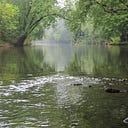‘Cover Crops 101’ returning to area
Free workshops set for Grand Meadow, Blooming Prairie
AUSTIN, Minn. — Jan. 6, 2022 — As cover crops and soil health continue to gain interest in Minnesota, two local experts are bringing back their free workshops to help farmers get started on the basics.
“Cover Crops 101” sessions led by Austin-area farmer Tom Cotter and seed dealer TJ Kartes, of Saddle Butte in Blooming Prairie, plan to present Jan. 12 at Midwest Equipment Co. (formerly SEMA) in Grand Meadow and Jan. 26 at the City Center in Blooming Prairie. Both events will feature the same presentation and offer free pizza to attendees.
Sponsors are Mower Soil & Water Conservation District; Saddle Butte; Superior Cannabis Co.; and Midwest Machinery.
Cover crops — such as cereal rye, oats and winter wheat — usually are planted in coordination with regular cash crops — commonly corn and soybeans — to temporarily protect cropland from wind and water erosion as well as give living roots to the soil during times when cropland often doesn’t have adequate protection, according to the USDA’s Natural Resources Conservation Service (NRCS). Cover crops can support healthy soils and cropland sustainability efforts and are viewed as tools to keep soil in place; bolster soil health; improve water quality; increase stormwater infiltration in soil; and reduce pollution from ag activities.
“Cover Crops 101” sessions have been helpful events to provide quality information and experiences with cover crops to farmers and ag landowners as well as generate informal discussions about soil health in general. They will discuss cover crop seed origination; species and species mixes; step-by-step production; and the value of cover crop technology, among other topics.
“Many farmers are interested in cover crops but don’t know how to get started or have concerns about adding that practice to their operation,” said Steve Lawler, soil scientist for Mower SWCD. “These ‘101’ sessions will give them great information on cover crops, including their numerous benefits, and how they can get started with that practice on their cropland.”
Cotter is a fourth-generation farmer who was honored in 2016 as Mower County’s Outstanding Conservationist of the Year and did extensive outreach under a 2017 Cover Crop Champion grant in coordination with Mower SWCD. He raises a variety of crops and runs cow/calf beef operation on his Austin Township farm that was certified through the state’s Ag Certainty water-quality program. He also is a co-owner of the Superior Cannabis Co., which uses hemp grown on Cotter’s farm.
Since 2017, Cotter has given dozens of presentations on cover crops and soil health, including at state and national conferences.
Kartes is a Blooming Prairie native who has worked with producers in a five-state area with cover crops since 2009. Starting in 1987, Kartes helped an uncle for nearly two decades with a farming operation in the Blooming Prairie area, where his uncle transitioned from ridge till to no-till to no-till with cover crops to adding a third crop to his rotation.
In Grand Meadow, pizza will be provided with beverages from noon to 12:45 p.m. at Midwest Equipment, 505 Fourth Ave. N.E. Soil-health partners and programs then will be highlighted from 12:45 p.m. to 1:15 p.m., including talks by Northern Country Coop. Cotter and Kartes then will give their “Cover Crops 101” presentation from 1:15 p.m. to 3:15 p.m.
In Blooming Prairie, coffee will be served from 9 a.m. to 9:30 a.m. at City Center, 138 U.S. Hwy. 218. Soil-health partners and programs will be from 9:30 a.m. to 10 a.m. followed by Cotter and Kartes from 10 a.m. to noon. Free pizza is from noon to 1 p.m.
Northern Country Coop during the “partners and programs” portion will discuss Truterra, a customized agricultural service tool that local agronomists are using to improve sustainability planning on farms. Northern Country is helping area farmers use this new technology to make farming more profitable through conservation measures on their land.
With carbon markets coming online, Northern Country can help farmers use Truterra and streamline the information to enable farmers to make decisions on how they can take credit for their stewardship work and help plan for what they can do in the future.
These workshops are a follow-up to a soil-health field day Mower SWCD organized Oct. 29 at the Terry & Cindy Hamilton farm near Adams. The Hamiltons — Mower SWCD’s 2020 Outstanding Conservationists of the Year — have established cover crops in a corn/soybean rotation and use strip tillage, among other soil-health practices.
In February, the “I-90 Soil Health Tour” will stop in Albert Lea for a free workshop Feb. 9 at Wedgewood Cove, 2200 West Ninth St. Soil-health practices that benefit the soil, environment, crop yield and more will be the focus.
Guest speakers at the “I-90 Soil Health Tour” events will include Mitchell Hora, an Iowa farmer and podcast host of “Field Work;” Dean Sponheim, a northern Iowa farmer with strip-till and cover crop experience; and Anne Sawyer, a University Minnesota extension educator in water resources and expert on carbon’s function in soil. The tour also is making stops Feb. 8 in Hokah; Feb. 10 in Fairmont; and Feb. 11 in Heron Lake.
For the Albert Lea event, RSVPs are required by Jan. 28 for lunch. Contact Freeborn SWCD’s Lindsey Zeitler at 507–320–3728 or by email at: lindsey.zeitler@mn.nacdnet.net
Mower Soil & Water Conservation District
In 2021, Mower SWCD was honored as the SWCD of the Year by the Minnesota Association of Soil & Water Conservation Districts (MASWCD). Mower SWCD is one of Minnesota’s 88 SWCDs each governed by an elected board. Since 1953, Mower SWCD has provided land and conservation services to Mower County landowners to help manage lands in a way that promotes a sound economy as well as sustains and enhances natural resources that are key to the state’s environmental health.
Mower Soil & Water Conservation District 1408 21st Ave. N.W. Austin, MN, 55912 (507) 434–2603 www.mowerswcd.org
